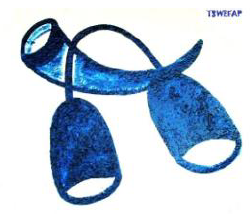
Batoufam Culture et Tourisme.
Cameroon
Host
The Ecoresponsible and Solidary Tourist Complex of the Kingdom of Batoufam (Cameroon) carries out various activities:
- Creation of a unique open-air museum that leads the tourist to discover the cultural wealth of the village through a labyrinth. The other tourist attractions of the village are the art shops inside the Royal Palace that present the local and regional artisans' most beautiful creations.
- Another example of solidarity is the presence in the village of a blacksmith who produces objects dedicated to agriculture, sculpture, cooking, hunting, as well as ritual and initiatory objects. In his workshop he receives the visit of many tourists who come to learn the rudiments of his art.
- Tourists also have the opportunity to visit craftsmen weaving raffia bamboo, specialised in the manufacture of various objects and furniture in this increasingly popular material. It also gives the opportunity to discover the techniques of raffia wine harvesting, which is highly prized by the local population as a drinking wine, but also used for all traditional rites.
- In terms of accommodation, the comfort of tourists is a central concern of the Batoufam, who, at the instigation of the King, have set up guest huts within the Royal Palace, allowing visitors to stay and sleep on site, in total immersion in the life of the community.
- This activity involves another complementary activity. This is the catering for visitors staying at the Royal Palace or simply passing through for the day. Hence the opening, within the Royal Palace, at the edge of the Sacred Forest, of a restaurant offering local dishes and allowing to highlight the Batoufam cuisine. Here again, the management of these two spaces has generated job creation among the local population.
- Another solidarity and intercultural activity has been set up in the kingdom. It consists in welcoming students from other countries and continents, such as the United States, France, Germany and many others, into the families (and no longer just at the Royal Palace) so that they can familiarise themselves with the daily life of the local population. Reciprocally, the children of the village discover the culture, the knowledge, and sometimes the language of their hosts.